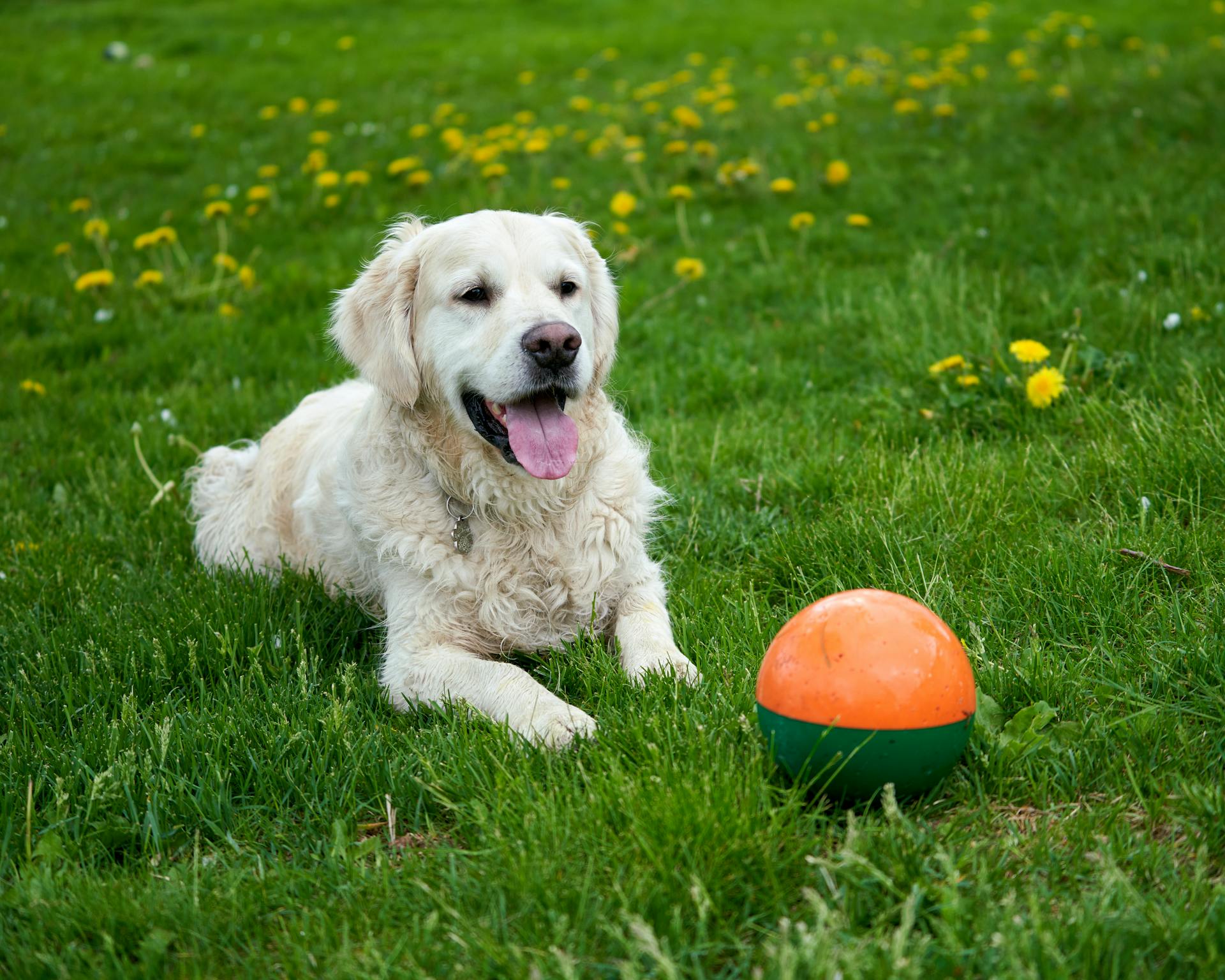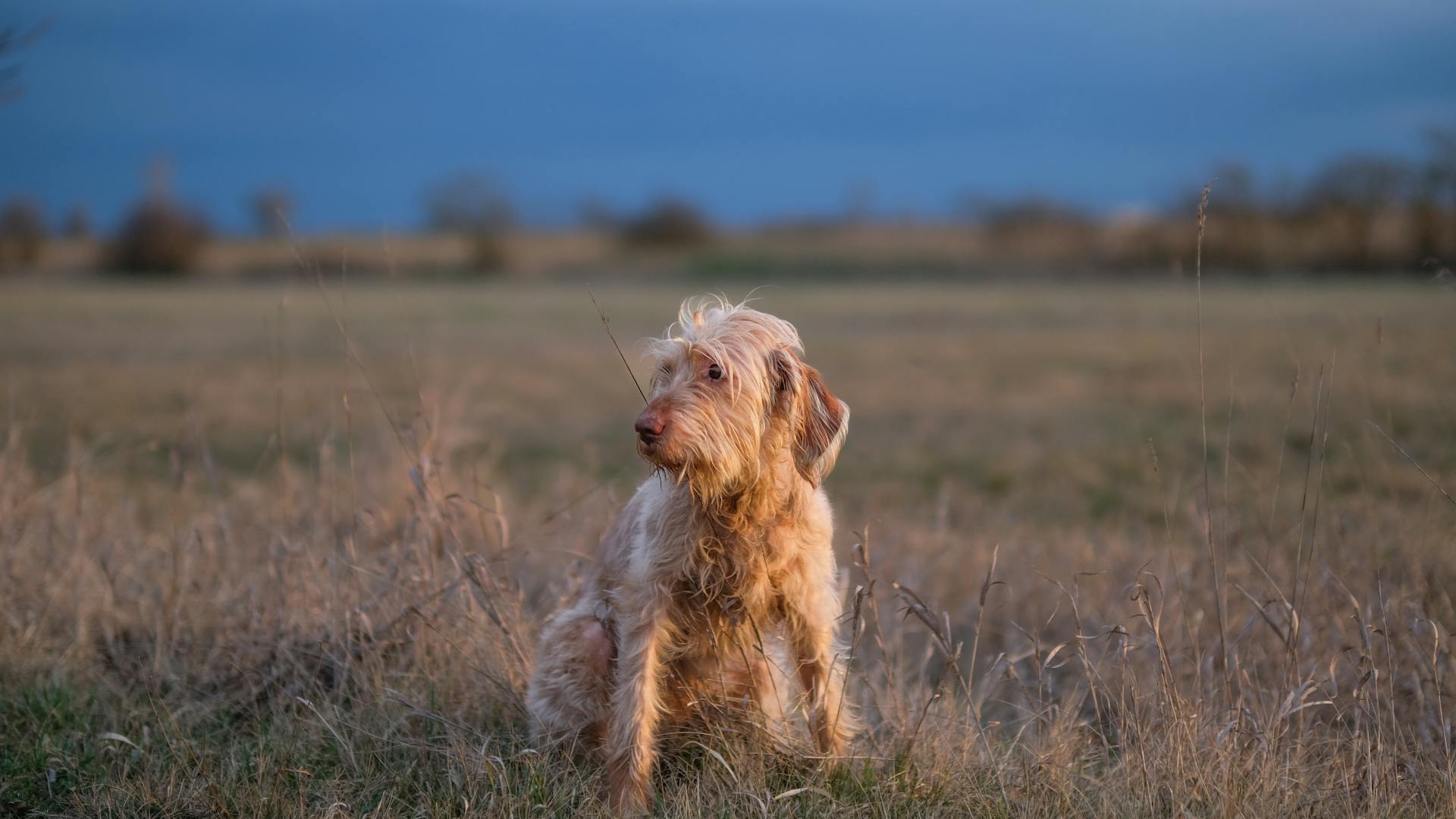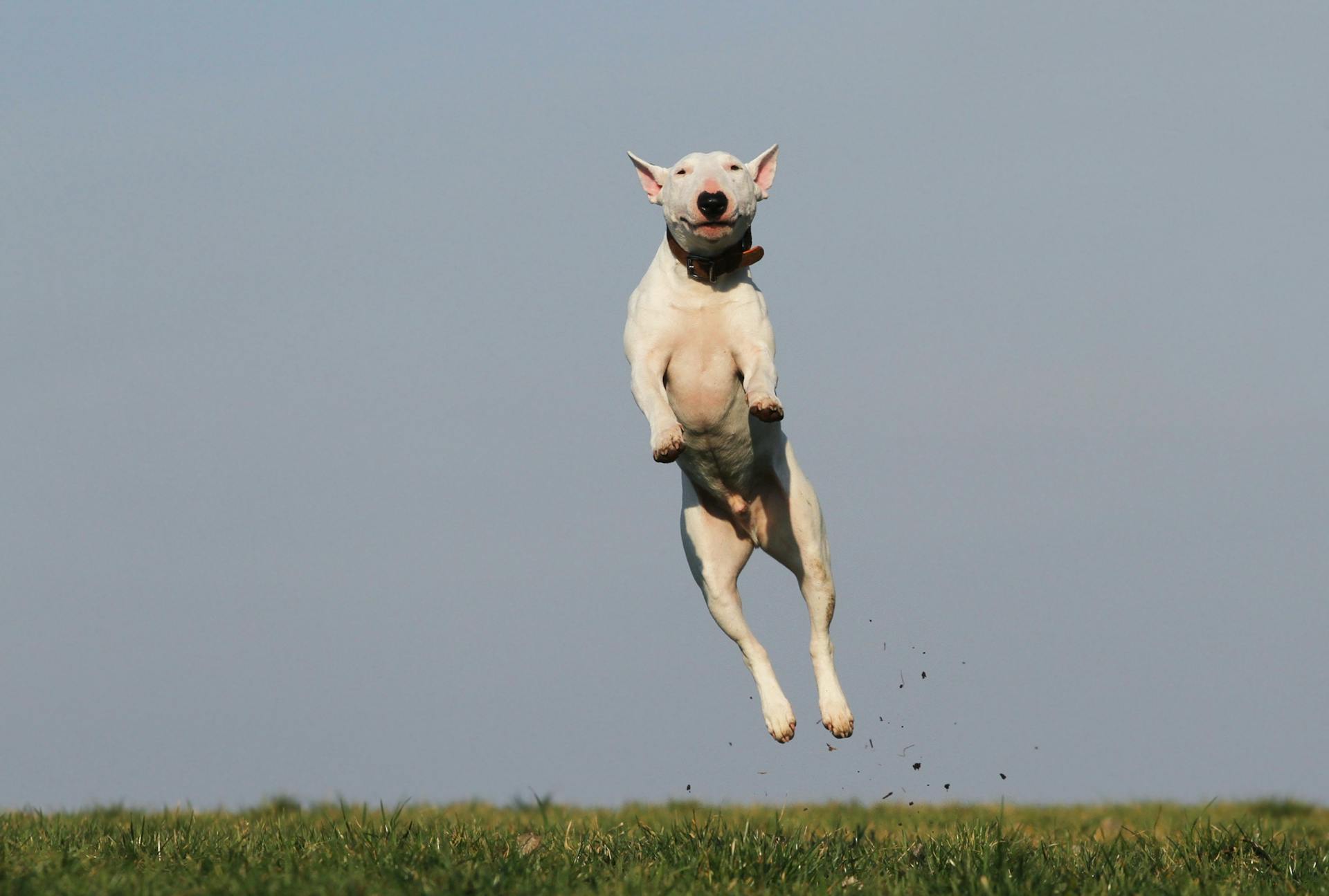
Many people wonder if Cane Corsos are mean dogs or if they're just naturally protective of their families. One thing's for sure, they have a strong instinct to defend.
Cane Corsos are an ancient breed, originating in Italy over 2,000 years ago. Their ancestors were bred to guard and protect.
Their protective nature is deeply rooted in their history and makes them excellent watchdogs. They're naturally suspicious of strangers.
Cane Corsos can be wary of new people and environments, which can sometimes be misinterpreted as aggression.
Temperament and Physical Characteristics
Cane Corsos are known for their protective instincts, loyalty, and strong sense of territoriality, making them exceptional guard dogs.
Their breeding history has emphasized these traits, which can sometimes manifest as overprotectiveness and aggression, especially if they perceive a threat to their family or territory.
Cane Corsos have a large muscular build, showcasing strength and agility, and their short coat is easy to maintain.
Their well-defined facial features, including a broad head and strong jaw, give them a commanding appearance that often commands respect.
With keen intelligence, Cane Corsos excel in various tasks and are quick learners when properly trained.
In fact, they can be quite affectionate with their trusted owners, showing their feelings openly.
However, they can be wary of strangers, which is why early socialization and training are crucial to help them feel comfortable around new people.
Responsible owners play a significant role in determining how these inherent traits manifest in individual dogs, and with the right care, Cane Corsos can be wonderful family pets.
Canine Care
Corsos are incredibly intelligent dogs that require consistent, lifelong training from their owners. They need clear direction and boundaries from an early age to prevent them from acting on instinct and treating everything outside their family unit and property as a threat.
Socialization is crucial for Corsos, and it should start at a young age and continue throughout their lives. Introduce your dog to as many people, noises, situations, and everyday items as possible, in a calm and controlled manner.
Regular exercise and mental stimulation are key to a Corso's well-being. They need at least three walks per day or other outdoor exercise totaling at least an hour, though this can vary depending on the individual dog.
Caring for a Dog
Cane corsos are not for beginners, they require hands-on, consistent training.
These dogs need to work, so they need to be given direction and clear expectations.
They love their families, but they're not low-maintenance dogs, they need regular exercise and mental stimulation.
A corso needs at least three walks per day or other outdoor exercise totaling at least an hour, though your mileage may vary depending on the dog.
Mental stimulation or "work" is just as important as physical exercise, and can drain energy even more effectively than physical activity.
Nose games, flirt poles, and backyard obstacle courses are great ways to provide mental stimulation.
If you live somewhere with snow, try getting your corso to pull a sled!
Here are some key characteristics to keep in mind when caring for a corso:
Leaving a Dog Alone
If you have a strong bond with your dog and play/exercise with it every day, you can leave it alone for 4–8 hours.
You can start leaving your dog alone for longer periods if you've established a strong bond through daily play and exercise. This breed needs mental stimulation and physical activity to prevent destructive behavior.
Crate training at a young age is recommended to prevent destructive behavior when left alone.
Corsos don't feel cramped up indoors, but they do need lots of space on the floor or the couch.
Aggression Factors
A high prey drive can lead to unpredictable behaviors in Cane Corsi, making them less responsive to commands and potentially aggressive when triggered.
Irresponsible ownership and neglect can contribute to developing aggressive tendencies in Cane Corsi, including neglecting proper care, not providing enough exercise, or using harsh training methods.
Fear is a common reason for aggression in Cane Corsi, as they may feel threatened or uncomfortable in certain situations.
Some Cane Corso dogs may have a genetic predisposition towards aggressive behaviors due to selective breeding practices in the past.
Here are some common factors that can contribute to aggression in Cane Corsi:
- Fear
- Territoriality
- Lack of socialization
- Pain or discomfort
- Possessiveness
- Frustration
- Previous negative experiences
- Genetic predisposition
High Prey Drive
A Cane Corso's high prey drive can be a major contributor to unpredictable behaviors and aggression. This intense focus on a moving target can make them less responsive to commands from their owners.
A Cane Corso's strong prey drive is an instinctual behavior from their ancestors' hunting background. It's a powerful motivator that influences their behaviors and reactions in certain situations.
Their history as working dogs used for guarding and protecting has made their prey drive particularly robust. This natural drive is a strong inner urge that pushes dogs to chase, capture, and sometimes even catch smaller animals.
A Cane Corso is likely to see smaller animals, such as cats or dogs, as potential prey due to their strong instinct. This can lead them to chase or attack the smaller creature.
Young children may also be viewed as potential "prey" due to their quick movements and higher-pitched voices. This can trigger the dog's instinctual response and put them at risk of harming the child.
Responsible dog owners should proactively understand and manage their Cane Corso's prey drive. This can be achieved through positive training methods and maintaining a safe environment to prevent potential harm or unintended consequences.
Irresponsible Ownership Leads to Aggression
Irresponsible ownership can have a profound impact on a Cane Corso's behavior, leading to the development of aggressive tendencies. This is because dogs not adequately cared for or mistreated may become fearful or defensive, resulting in aggressive behavior as they cope with their environment or as a way to protect themselves.
Irresponsible ownership can include neglecting proper care, not providing enough exercise, or using harsh training methods. This kind of treatment can lead to a Cane Corso becoming fearful or defensive, which may manifest as aggression.
Some common signs of irresponsible ownership include neglecting proper care, such as not providing regular veterinary check-ups, adequate food, and clean living conditions. This can lead to a Cane Corso becoming fearful or defensive, which may manifest as aggression.
A study found that 50% of Cane Corso owners who reported their dogs' aggressive behavior also reported neglecting proper care. This highlights the importance of responsible ownership and proper care in preventing aggression.
Additional reading: Cane Corso Dog Aggression
Here are some examples of irresponsible ownership that can contribute to aggression in Cane Corsi:
- Neglecting proper care, such as not providing regular veterinary check-ups, adequate food, and clean living conditions
- Not providing enough exercise, leading to frustration and aggression
- Using harsh training methods, which can lead to fear and aggression
- Ignoring or not addressing behavioral problems, such as fear or aggression, which can escalate into more severe issues.
It's essential for Cane Corso owners to recognize the importance of responsible ownership and take proactive steps to prevent aggression. This includes providing proper care, training, and socialization, as well as addressing any behavioral problems promptly.
Aggression and Safety
Aggression in Cane Corsos can be a complex issue, and it's essential to understand the underlying factors that contribute to it. A high prey drive can lead to unpredictable behaviors in Cane Corsos, causing them to become hyper-focused and fixated on a moving target, which can be mistaken for aggression.
Irresponsible ownership and neglect can also lead to aggressive tendencies in Cane Corsos. This includes neglecting proper care, not providing enough exercise, or using harsh training methods, which can contribute to developing aggressive behaviors in the breed.
Some Cane Corso dogs may have a genetic predisposition towards aggression, which can be influenced by selective breeding practices in the past. However, genetics is only one factor that can influence a dog's behavior, and responsible breeding and socialization can play a significant role in shaping a Cane Corso's overall temperament.
Here are some common signs of aggression in Cane Corsos:
- Growling and snarling
- Raised hackles
- Stiff body language
- Lunging or snapping
- Showing teeth
- Direct eye stare
- Raised lips
- Protective or possessive behavior
A Cane Corso's bite force is incredibly strong, with a range of 500 to 700 pounds per square inch (psi), which can cause severe damage. This means that even a minor incident can lead to significant harm, and victims may require immediate medical attention, surgery, and extended rehabilitation.
A Bite
A Cane Corso's bite force can be quite significant, with a range of 500 to 700 pounds per square inch (psi), which is several times more pressure than a human's average bite force of 150 psi.
Their powerful jaws and strong bite force can cause severe damage, including deep tissue wounds, punctures, and fractures, which may require immediate medical attention, surgery, and extended rehabilitation.
The severity of the injury can have long-term consequences, such as scarring, nerve damage, and emotional trauma, which can significantly impact a victim's physical and emotional well-being.
Broaden your view: Italian Mastiff Bite Force
Anyone can be a victim of a Cane Corso dog bite, but certain factors may increase the likelihood of an incident, such as young children due to their small size and higher-pitched voices.
Individuals unfamiliar with dogs may also be at greater risk if they act threateningly or inadvertently provoke a Cane Corso.
Legal Implications of Attacks
Dog owners are legally responsible for ensuring their pets do not pose a danger to others. This responsibility is based on the principle of negligence, where owners are expected to exercise reasonable care to prevent their dogs from causing harm to others.
A Cane Corso's attack can result in significant medical expenses, which can quickly increase due to the type of damage a single bite can cause.
Dog owners may be held liable for damages caused by their dog's attack, and the victim may pursue a legal claim against the owner to seek compensation for medical expenses, pain and suffering, and other damages resulting from the incident.
The owner's liability for damages caused by a Cane Corso's attack can be substantial, making it crucial for owners to take steps to prevent such incidents from occurring.
What About Children?
Cane Corsos are often misunderstood as being unfriendly to children, but the truth is more nuanced. This breed is actually highly protective of little ones, making them great guardians.
However, this doesn't mean you can leave them alone with the dog. Children often don't understand the difference between playing with a Corso and frustrating it, which can lead to accidents.
In fact, young children may be more susceptible to dog bites due to their small size and higher-pitched voices, which can trigger a dog's prey drive or territorial instincts. This is especially true for Cane Corsos, as they are bred to be protective and territorial.
To ensure the safety of both children and Cane Corsos, it's essential to supervise interactions closely. This means keeping a close eye on how children interact with the dog and teaching them how to behave around a Cane Corso.
Here are some key things to remember when introducing a Cane Corso to your family:
- Children should be old enough to understand how to interact with the dog safely
- Supervise interactions closely to prevent accidents
- Teach children how to behave around a Cane Corso, such as not climbing on the dog or teasing it
By taking these precautions, you can help create a safe and harmonious environment for both your children and your Cane Corso.
Owning a Cane Corso
Owning a Cane Corso requires a significant amount of time and attention, as they need regular exercise and mental stimulation to prevent boredom and destructive behavior.
Cane Corsos are naturally protective of their family and territory, but proper socialization from an early age can help them become confident and calm in new situations.
They are highly intelligent and trainable, but may be resistant to commands if they don't see the purpose or reward.
A Cane Corso's strong prey drive can make them a challenge to manage around small pets, and they may require separate areas for exercise and playtime.
With consistent training and positive reinforcement, Cane Corsos can learn to walk calmly on a leash and respond to basic commands.
They are generally quiet dogs, but may bark to alert their owners to potential threats or strangers.
Their short coats require minimal grooming, but they do shed heavily during seasonal changes, so regular brushing is essential.
A Cane Corso's average lifespan is 10-12 years, and regular veterinary check-ups are crucial to maintaining their overall health and well-being.
Their athletic ability and high energy levels make them well-suited for active families or individuals who enjoy outdoor activities.
Training and Socialization
Training and socialization are crucial for any dog breed, and Cane Corsos are no exception. They need to be socialized from a young age to various people, animals, and environments to develop positive behaviors and adapt well to different situations.
A lack of proper socialization can lead to fearful or anxious behavior in Cane Corsos, resulting in defensive or aggressive responses. This is why early socialization is a must for this breed.
To train a Cane Corso, you need to be a strict yet gentle trainer. Harsh punishments can be counterproductive, so it's essential to be patient, instructive, and ready to reward good behavior.
Cane Corsos are intelligent and eager to please, but they can be sensitive and get offended during training if not handled correctly. They also don't take lightly to strangers unless socialized properly.
Here are some key training and socialization tips for Cane Corsos:
- Start training early and be consistent
- Use positive reinforcement techniques
- Socialize your Cane Corso from an early age to various people, animals, and environments
- Set clear boundaries and expectations
- Provide regular exercise and mental stimulation
Regular exercise, mental stimulation, and clear boundaries are essential for a well-behaved Cane Corso. They need at least three walks per day or other outdoor exercise totaling at least an hour, and mental stimulation can be provided through nose games, flirt poles, or backyard obstacle courses.
By following these training and socialization tips, you can help your Cane Corso become a well-mannered, open-hearted dog that is loyal and protective of its family.
Frequently Asked Questions
Are Cane Corso good family dogs?
Yes, Cane Corsos can make great family dogs with proper socialization, training, and care. They are loving and protective of their family, but not inherently aggressive.
Sources
- https://www.thefarmersdog.com/digest/the-cane-corso-guide-history-personality-care-food-and-more/
- https://www.thenewjerseydogbitelawyer.com/are-cane-corso-dogs-dangerous/
- https://www.askthedogguy.com/aggression-maturing-cane-corso/
- https://lifewithmygiant.wordpress.com/2018/01/07/are-cane-corsos-aggressive/
- https://www.dogster.com/lifestyle/are-cane-corsos-affectionate
Featured Images: pexels.com


